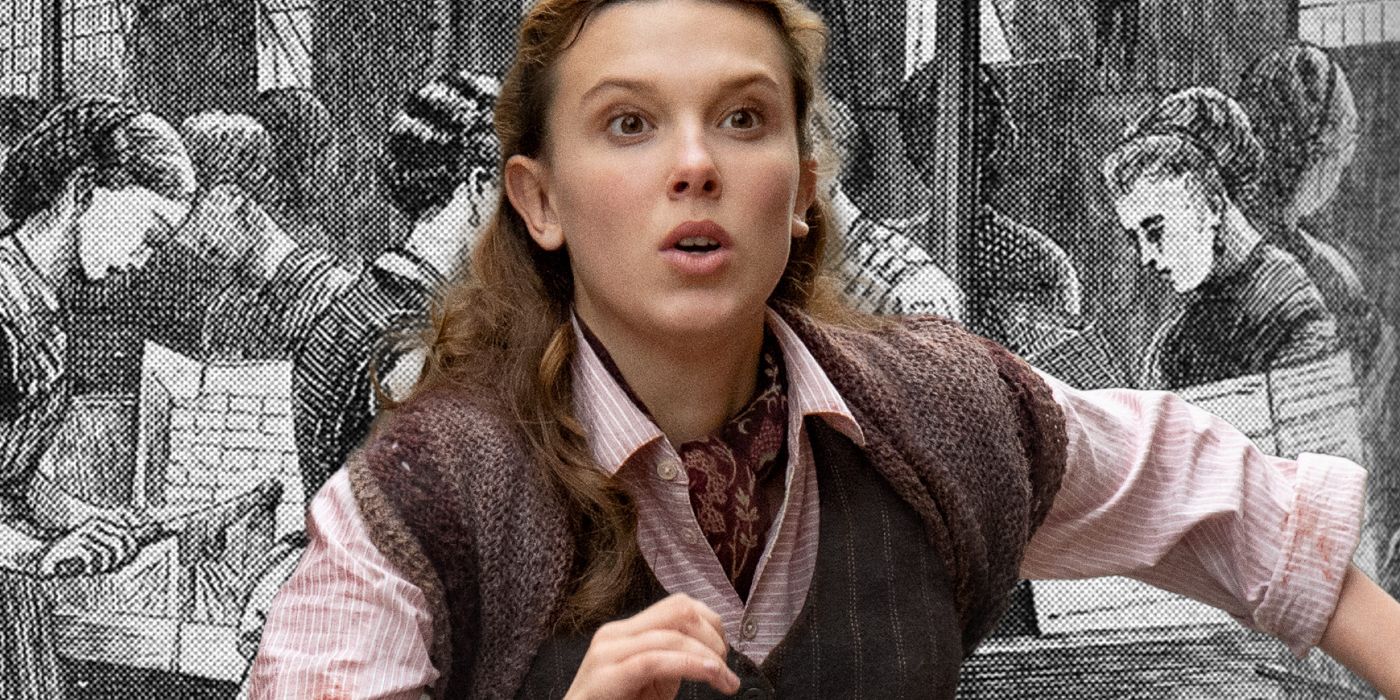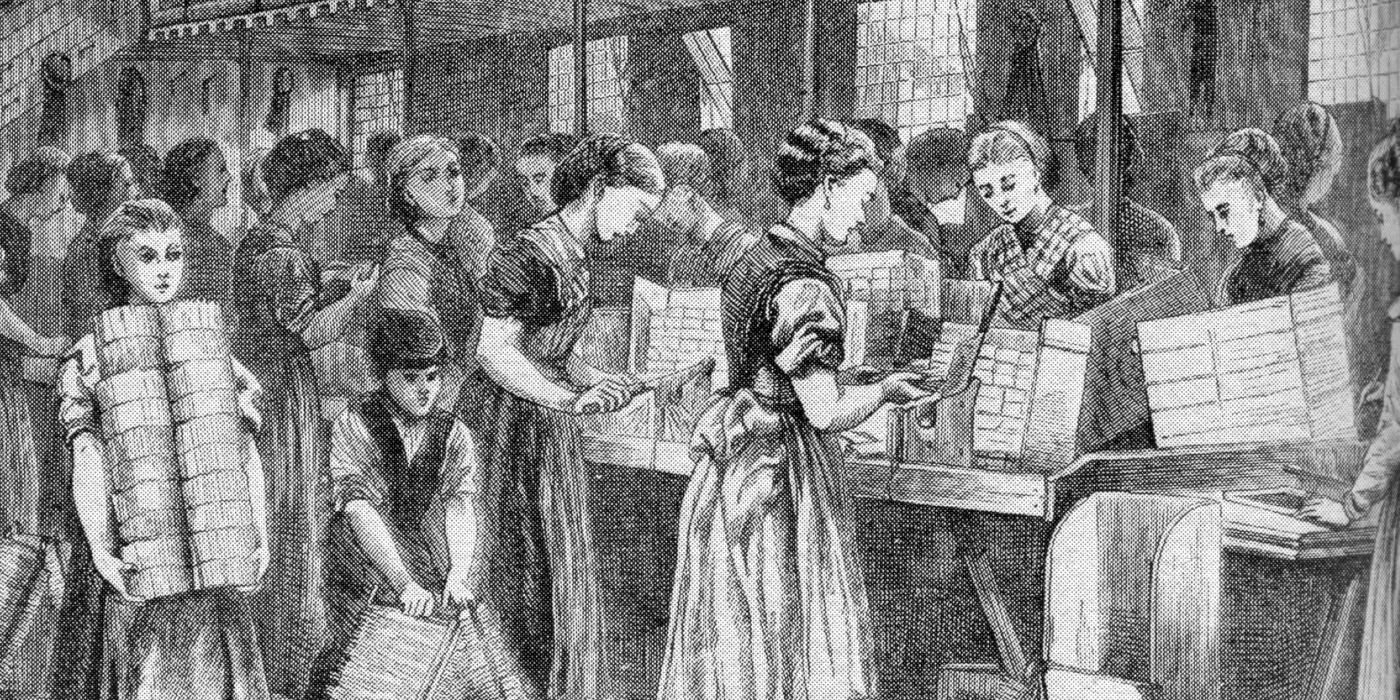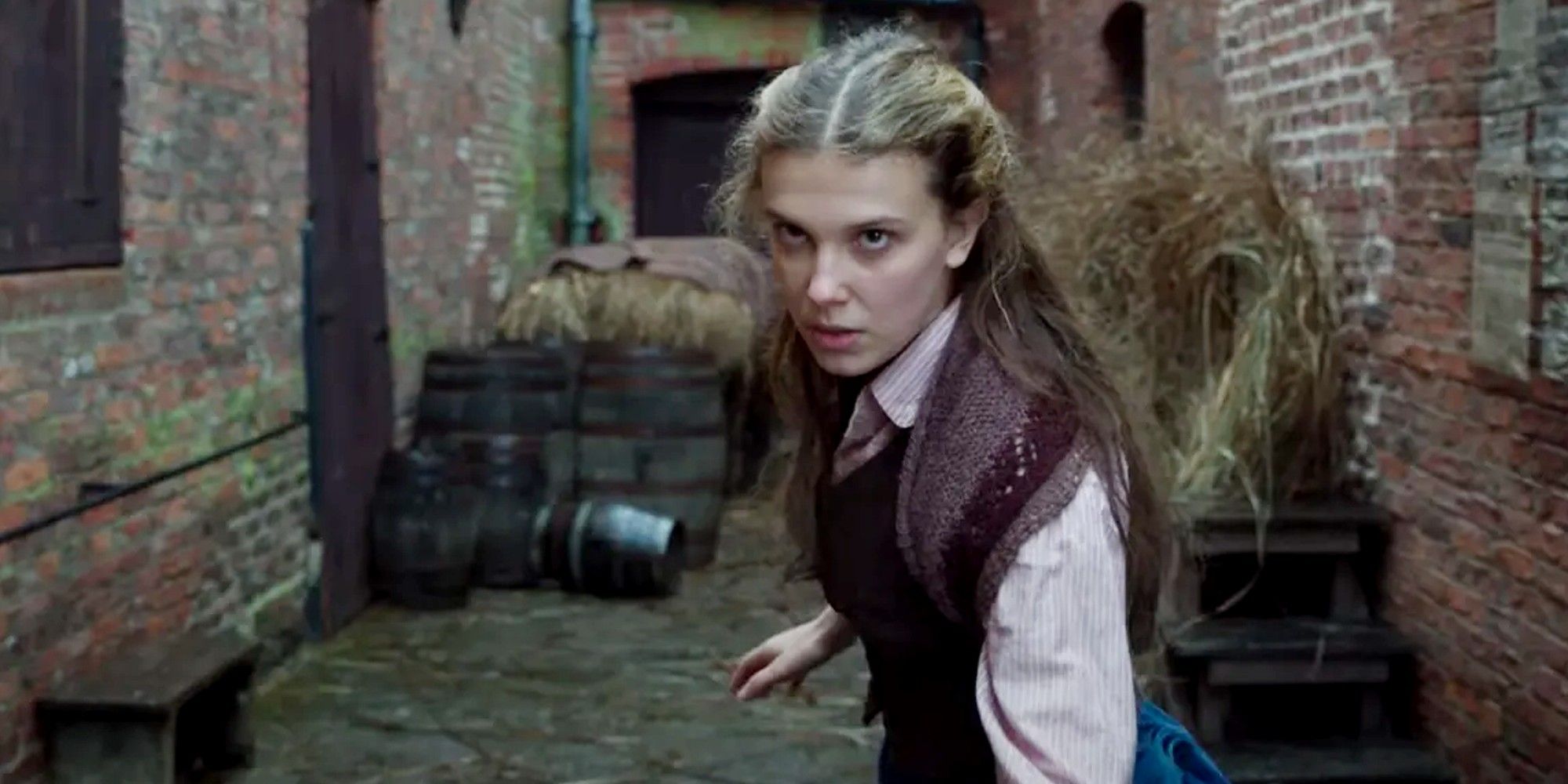This article contains spoilers for Enola Holmes 2.Enola Holmes 2's Matchgirls' Strike is a real historical event, although naturally the real strike did not involve Sherlock Holmes' younger sister. Netflix's Enola Holmes films are loosely inspired by a popular range of novels by Nancy Springer, but they've been designed to blend with real history as much as with the world of Sherlock Holmes. The first Enola Holmes discussed the Great Reform Act, a key moment in the history of British democracy. The sequel moves on to another real-world historical event.
Enola Holmes 2 sees Millie Bobby Brown drawn into a web of mystery and intrigue when she learns a matchgirl named Sarah Chapman has gone missing. She eventually learns Chapman had uncovered evidence that the health costs of phosphorus, used as part of the matchmaking process, were being covered up; desperate to reveal the truth to the world, Chapman had hidden from her former bosses while she attempted to find a way to contact Lord Tewkesbury, who had gained a reputation as a great reformer. Although Enola and Sherlock Holmes worked together to crack the case, the evidence was unfortunately destroyed - but Sarah Chapman did not give up, and instead managed to call a strike.
The Matchgirls' Strike Was A Real Historical Event
The Matchgirls' Strike is not a fictional event - and Sarah Chapman is a real historical figure too. In reality, the strike was over a lot more than phosphorus poisoning; it was also about the harsh and unrelenting conditions the matchgirls worked in. A cartel had established itself in that area of London, Bryant & May, and they paid a pittance; one 16-year-old earned just four shillings a week, barely enough to afford bread to eat after paying for her rent. The greatest hazard was a condition called "phossy jaw," a form of bone cancer caused by exposure to phosphorus.
Sir Arthur Conan Doyle's Sherlock Holmes is not a historical figure, of course, and nor are the various characters from Nancy Springer's books. Still, there was indeed a cover-up of sorts by Bryant & May, but not with a faked typhus outbreak; in the real world, the company dealt with the problem by ordering the forced removal of a girl's tooth as soon as she reported an ache. If anyone dared refuse, they were fired on the spot. The matchgirls had a good idea what was going on, and by 1888, pressure began to build. In July 1888, activists Annie Besant and Herbert Burrows published an exposé on the poor working conditions, a daring step given the industry was a powerful one and nobody had ever dared challenge it before. The factory bosses were outraged, and tried to force the girls into denying the story was accurate. This proved to be a costly mistake.
The modern Sherlock Holmes franchises seem obsessed with the Suffragettes and female empowerment in the Victorian era, and there's a good reason; because British history has sadly tended to overlook key parts of this story. In this case, the involvement of Besant and Burrows led most historians to consider the Matchgirls' Strike to be a minor event, but recent evidence has suggested this was mistaken. The strike actually seems to have been a remarkably spontaneous reaction to Bryant & May's attempt to exert pressure on the matchgirls, with the women appalled when the factory fired a "pale little person in black." Sarah Chapman was a key member in the strike committee, and her importance in these events has only recently come to light. She is even believed to have been one of the 12 delegates ultimately allowed to speak in the House of Commons, telling Partliament about their appalling working conditions.
Enola Holmes 2's Matchgirls' Strike Changed British History
Most British period dramas focus on the wealthy and aristocratic; Netflix is even reportedly working on prequels to The Crown that focus on monarchs such as Queen Victoria herself. Enola Holmes fictionalizes a part of history that is generally overlooked, exploring the social discontent rumbling through the streets of London. As historian Dr. Louise Raw explained in an article for History Extra, there's evidence dockworkers contacted the matchgirls for advice, and their more famous strikes changed the power dynamic in Britain forever. A year later, reformer John Burns called for those dockworkers to "…stand shoulder to shoulder. Remember the matchgirls, who won their strike and formed a union." Enola Holmes 2's Matchgirls' Strike became the spark that lit the flame.
Enola Holmes 2 is streaming now on Netflix.



